Making Shane: An Oral History of The L Word ’s Resident Heartbreaker
Every TV show worth its salt has its heartthrob. In the noughties, Grey’s Anatomy had McDreamy, and later, McSteamy; The O.C. had angsty Ryan Atwood (and, for a more indie-inclined viewer, nebbish Seth Cohen). In 2004, Showtime debuted a series about a group of lesbians living (and, per the show’s theme song, laughing, and loving, and fucking) in Los Angeles called The L Word. This time, the heartthrob looked a little different.
While the nominal protagonist of The L Word was, at first, newly out writer Jenny Schechter (Mia Kirshner), the spiritual hero of the show was none other than aspiring hairstylist Shane McCutcheon (Kate Moennig), the only hardscrabble, non-lipstick lesbian on a show populated primarily by white, affluent femmes. When we first meet her in The L Word’s pilot episode, Shane is rumpled, cranky, and caffeine deprived, clad in a sleeveless vest and aviators, but her appeal is instantly obvious. “Whenever Shane walks into a room, somebody runs out crying,” her friend Bette (played by Jennifer Beals) observes.
Over the course of the series, Shane goes from the lesbian Don Juan of West Hollywood to an actual person with great loves, undeniable talent, and—most of all—friends she’d do anything for. One thing stayed true, though; when Shane appeared onscreen, tousle haired and sardonic, audiences (both queer and not) took notice.
The appeal of Shane has endured, still debated and appreciated in dorm rooms and lesbian bars across the world. Now, the woman who launched a thousand fan Tumblrs is poised to make a comeback alongside original characters Bette and Alice (Leisha Hailey) on The L Word: Generation Q, coming to Showtime on December 8. In honor of her return to the small screen, here is an oral history of Shane McCutcheon—according to the people responsible for bringing her to life, as well as the fans who loved her.
I. Finding Shane
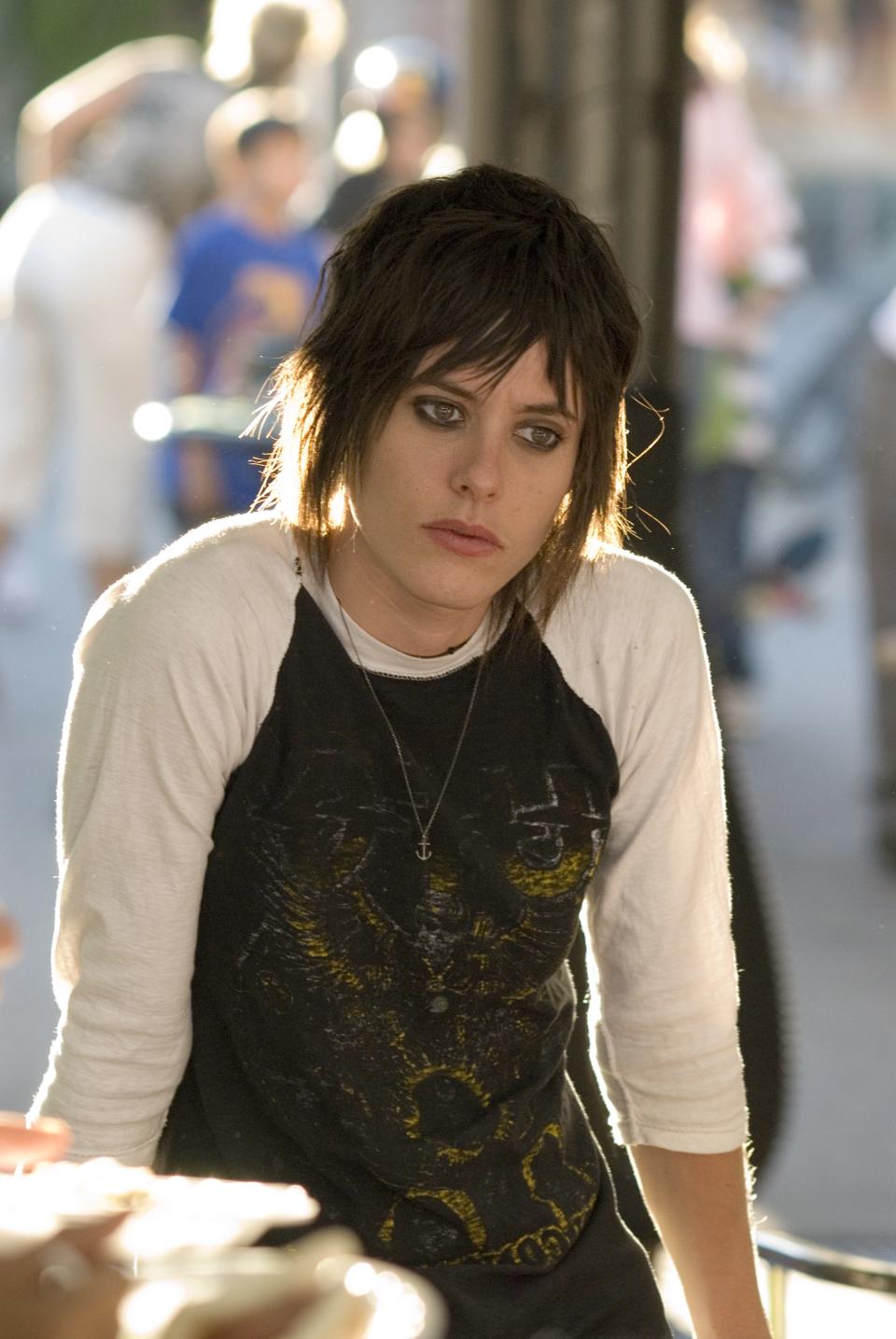
THE L WORD
Photo: Courtesy of ShowtimeIlene Chaiken (co-creator, writer, and executive producer): Of all the characters, Shane was the one I had the most specific, visceral sense of. I knew Shane would be the hardest to cast, because not a lot of experienced, skilled actresses had the vibe of sexy and defiant androgyny that I wanted. In my mind, she always had dark hair, and the voice was the most important part; it couldn’t be some cool young woman who undercut it all with a girly voice.
Gary Levine (president of entertainment at Showtime): That original pilot shot of Shane in the vest, going around the hedges, has only gotten more iconic with time.
Kate Moennig (actor, Shane McCutcheon): I was living in New York when I received the pilot script, which was originally called Earthlings. I thought, What the hell is this? But I figured it out by page two. I met with the casting director, who put me on tape, and then they flew me to L.A. to read for it. One other girl was reading for Shane that day, and that was Leisha Hailey, who plays Alice. She had this comb in her back pocket, I saw it and thought, “Shit, I can’t believe she brought that, what a smart idea. I have nothing to play with in this scene.” That’s how we met for the first time, and long story short, she didn’t get it (laughs). I went into the room, auditioned, and soon we were shooting the pilot in Vancouver.
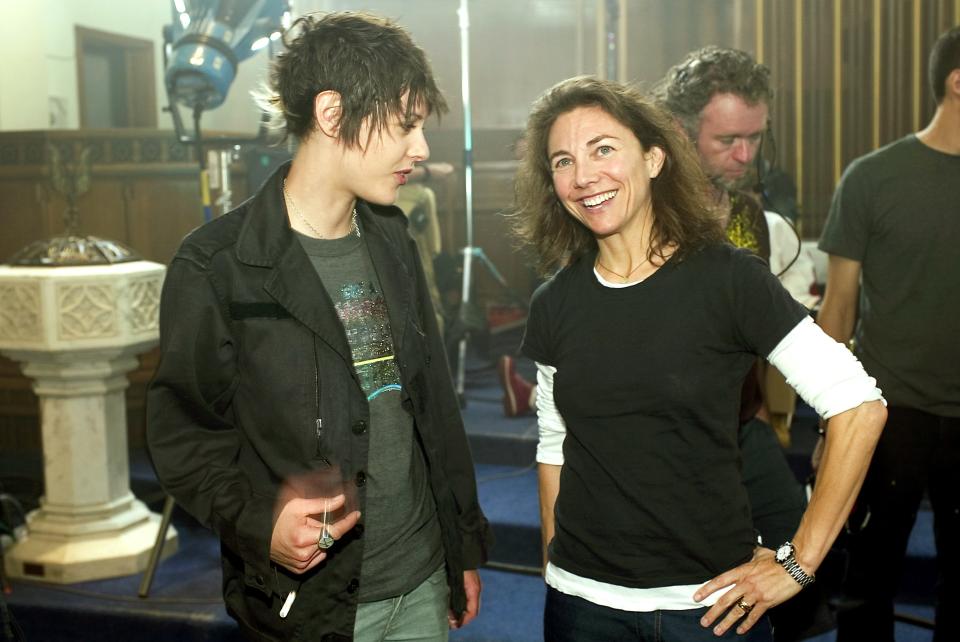
THE L WORD, Katherine Moennig, executive producer Ilene Chaiken on-set, (Season 2), 2004-09, photo:
Chaiken: Kate was specifically and explicitly Shane. The straight, white, male network guy loved Leisha, and I did too, but not for Shane. We threw down, and I stood firm—“Trust me on this”—and we made the deal that we’d find something else for Leisha, who I wrote Alice for.
Jennifer Beals (actor, Bette Porter): The first time I met Kate, I was with my husband in an elevator at the Sutton Place in Vancouver. This incredibly beautiful, self-possessed, androgynous woman turned to me, and with this extraordinary voice asked me if I was on The L Word. We hadn’t yet begun shooting. I said, “Yes,” and asked her if she was on the show. She almost smiled, and said, “Yeah. I’m Kate.” The elevator doors opened. She said, “I’ll see you around,” and gave us the peace sign as the doors closed. We turned to one another and simultaneously said, “Shane.” Kate was always relaxed in her work. Witty. But the epitome of zen.
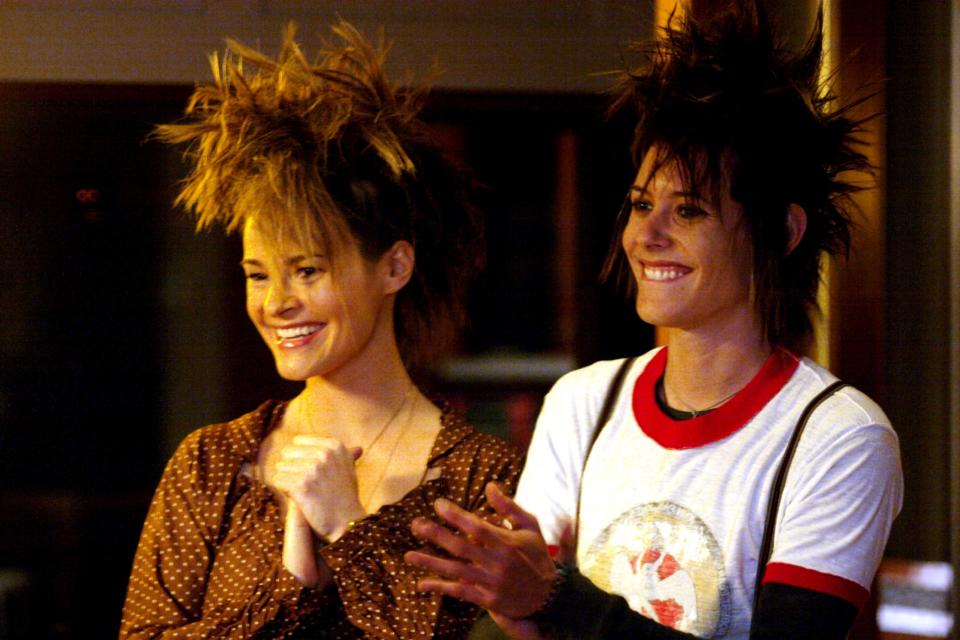
THE L WORD, Leisha Hailey, Katherine Moennig, 'Latecomer', (Season 3), 2004-09, photo: Liane Hentsch
Leisha Hailey (actor, Shane’s friend Alice Piezsecki): I never imagined that when I met Kate in 2003 that we were starting a 17-year friendship. How lucky am I that I get to work with my best friend? Now we basically play alternate versions of Shane and Alice out in the real world. We pretty much see each other every day.
Sarah Shahi (actor, Carmen de la Pica Morales): My first day of filming was with Kate, and here’s how that went—“Sarah, this is Kate. Kate, this is Sarah. Sarah, in this scene, Kate’s gonna go down on you.” We both busted up laughing so hard. And the rest was history. And any time we had any love scenes, we really took care to cover the other up in our blocking. We were sisters. We still are.
II. Being Shane
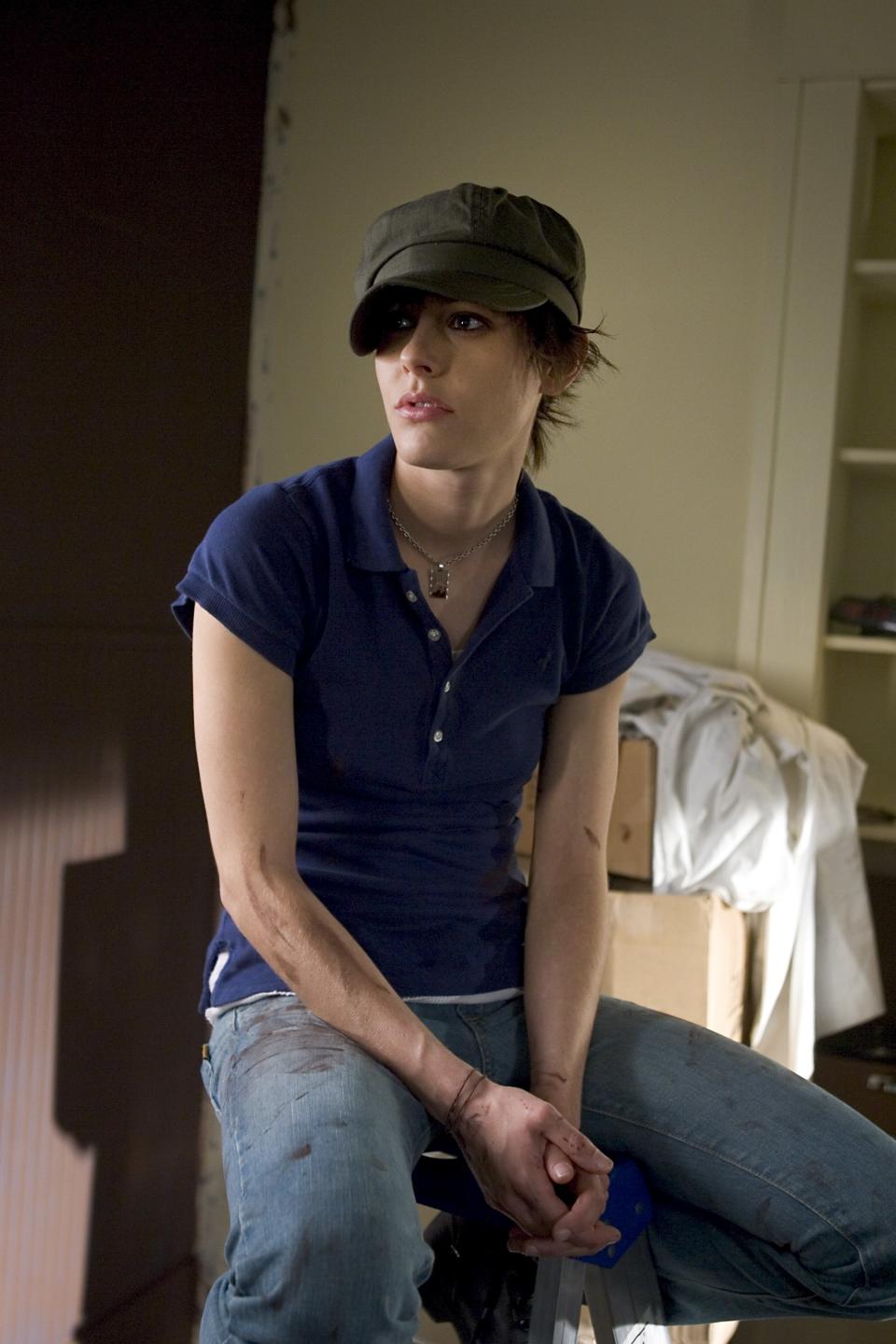
THE L WORD
Photo: Courtesy of ShowtimeMoennig: My father died a month after the show aired, so I wasn’t really in a place to pay attention [to the world’s response to Shane]. I was in my own world dealing with real life, and I had a delayed reaction. Shane was so much fun to play because she had such self-possession, and hopefully she gave people the privilege of being accepting of themselves as well—back in 2004, an androgynous female lead was harder to find. People didn’t really know what “androgynous” was.
Chaiken: I always had an idea of Shane as a savant: self-schooled on the street, coming from a difficult childhood. We really played with gender fluidity, and at times Shane could pass as a boy. We didn’t really use words like “nonbinary” in 2004, but it was always clear that Shane was not what we might think of today as nonbinary—she’s just androgynous. There’s a club scene in season one where Shane is all dressed up, with makeup on, and [director] Rose Troche said to me, “She goes through boy to do girl.”
Beals, on what the character of Shane meant to her: It’s like asking what Christmas means to me. It’s ineffable. Shane is the triumph of survival. She’s the triumph of authenticity over fashion.
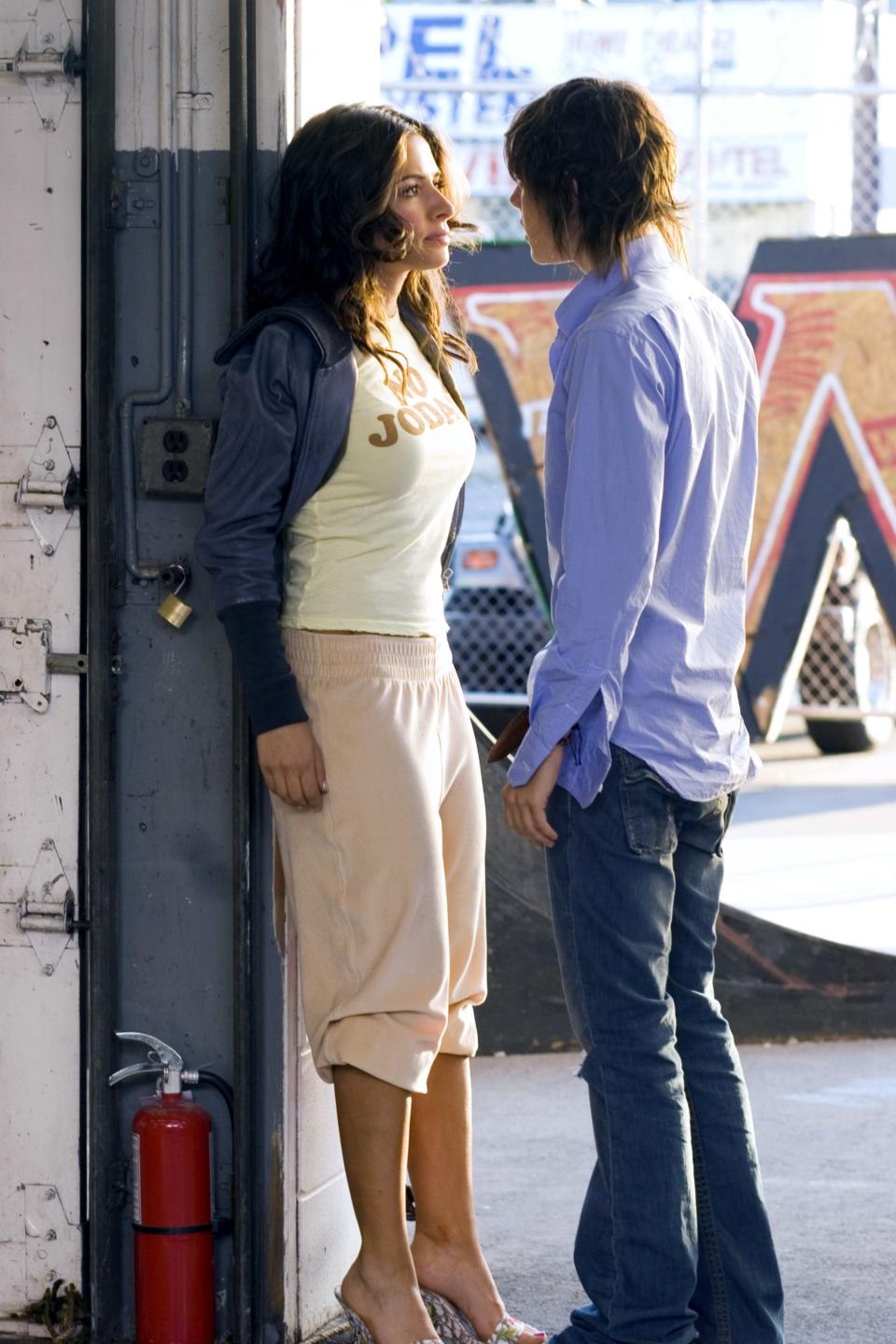
THE L WORD, Sarah Shahi, Katherine Moennig, 'Lifeline', (Season 3), 2004-09, photo: Liane Hentscher
Moennig, on Shane’s character arc: I thought the Carmen storyline was great, and I love Sarah Shahi to death. I loved working with Rosanna Arquette [who played Shane’s on-and-off flame Cherie Jaffe]—she is an absolute pleasure. The friendship with Mia Kirshner’s character, Jenny, started off in an interesting place, because they were two little misfits, but it really jumped the shark when they got together. It was a terrible idea, because they were friends, but I think the dynamic could have worked if there wasn’t a murder mystery plot in the final season that overshadowed everything.
Shahi, on the end of Carmen and Shane’s relationship: I only had a two-year contract to begin with, so I knew it had to come to an end. I was excited to do other things, but at the same time, The L Word, the girls, Ilene Chaiken—it was a dream job. Ilene has so much respect for actors and the process; I got spoiled on that show. I thought it would be like that in other jobs, and it wasn’t. And as far as our story line goes, I think creatively it was the most truthful choice. It was too early for Shane to settle down. There was no choice but for Carmen to get her heart broken.
Moennig, on Shane’s season 4 guardianship of her younger half brother, Shay: I came up with that brother storyline because after Shane dumps Carmen at the altar, I wanted her to have some level of redemption. Carmen was so loved by so many people, and that’s pretty unforgivable—I think it’s what was needed at the time to get Shane back on track. I don’t think her running around causing mayhem would have been terribly sympathetic or relatable.
III. Watching Shane
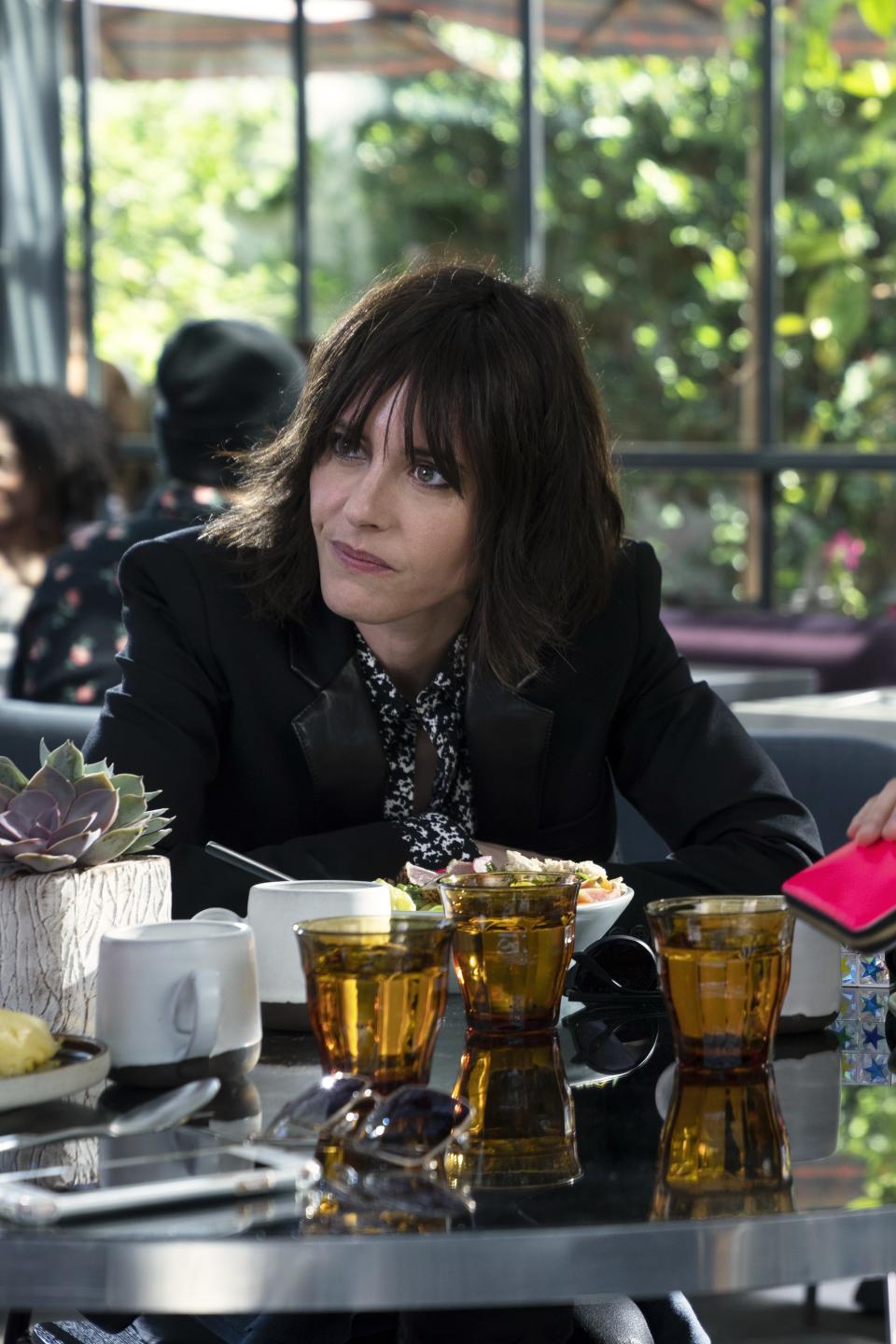
101 - Let's Do It Again
Photo: Courtesy of Hilary Gale / ShowtimeChaiken: There was an L.A. club that screened new L Word episodes on Sundays and as the show became a phenomenon, everybody there had the Shane haircut, the fedora, the sleeveless vest. It was clear she was a style icon. Straight women talked about Shane, fell in love with her, saw her as a “gateway lesbian.”
Katie Heaney (author of the coming-out memoir Would You Rather): Shane caused a huge identity crisis for me. I was obsessed, and so attracted not just to Shane, but every character’s woman-centered life. I did some panicky research online, and saw all these things about Shane being a sort of universal plug for sexuality, and I decided she was just one of those people, and I was still at least 95% straight. I know now that a straight woman doesn’t do that much research on lesbians. It’s a little painful to think about now, because I wouldn’t really come out to myself for another seven years, but Shane planted a very slow-growing seed for me.
Riese Bernard (Autostraddle co-founder and CEO and host of the L Word podcast, “To L and Back”): Through the re-watch process [for Bernard's podcast], I still obviously am attracted to Shane, but I notice other qualities about her: She’s a very loyal friend, she’s a lot more accepting of bisexual and trans folks than her peers are, she always puts her friends first, she’s very empathetic and caring. I also notice that I think she’s very clearly poly and should probably stop trying to be in monogamous relationships! It’s funny how they frame her as the girl who can’t commit, but she has more serious girlfriends throughout the series than anybody else does.
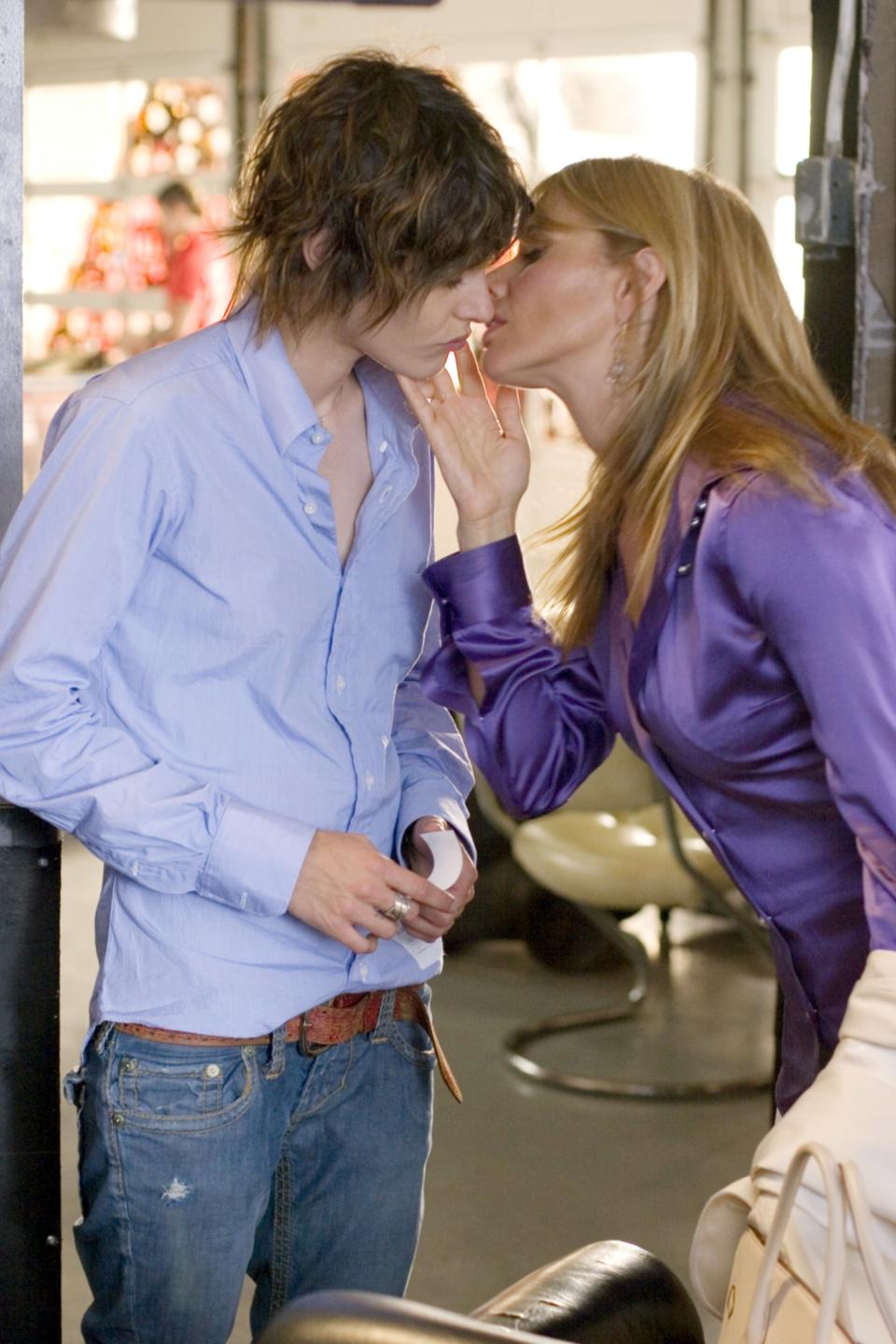
THE L WORD, Katherine Moennig, Rosanna Arquette, 'Lifeline', (Season 3), 2004-09, photo: Liane Hents
Jacqueline Toboni (actor, Sarah Finley, The L Word: Generation Q): Shane was the only non-femme main character, and seeing her have internal struggles that weren’t just about being gay was so important to queer kids. There was this split between, “Oh my God, I want to be her,” and, “Oh my God, I’m in love with her.” In the new show, Shane plays sort of a reluctant older sister to my character, which is a dynamic that happens with Shane a lot because she has such a big heart.
Hailey: In The L Word: Generation Q, Shane has a lot more responsibility on her shoulders, but at her core, she is still the same person and is forced to rise to the occasion.
Levine: One of our primary directives in the reboot was to honor and deepen the character of Shane, and Marja-Lewis Ryan, The L Word: Generation Q showrunner, worshipped the original but still has so many new things to say about the character.
When you buy something through our retail links, we may earn an affiliate commission.
Originally Appeared on Vogue

